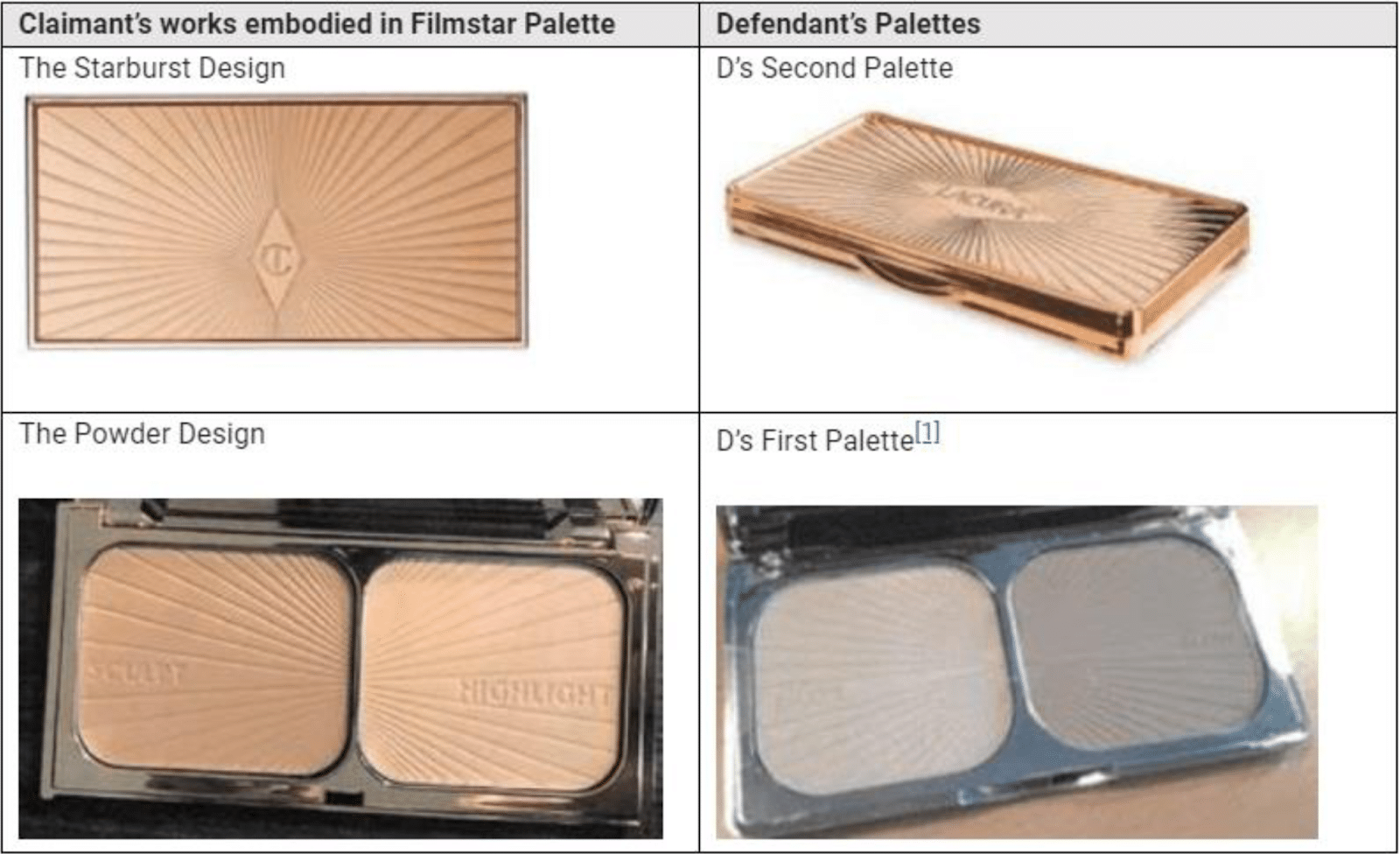Is there copyright in cosmetics?

Charlotte Tilbury (£49) or Aldi (£6.99)?
When discount supermarket chain Aldi launched what looked like its versions of a few cult makeup and skincare products earlier this year, beauty bloggers were excited. Are Aldi’s versions as good as the originals, at a fraction of the price? That remains a matter of opinion, but the court case that resulted from the launch is indisputable.
In Islestarr Holdings Limited v. Aldi Stores Limited [2019] EWHC 1473(Ch), heard earlier this year in the High Court, Islestarr, the company behind the well-known Charlotte Tilbury brand, took on Aldi – and won.
The copyright case
The Charlotte Tilbury brand, fronted by the eponymous celebrity makeup artist, was launched by Islestarr 2013; the Filmstar Bronze & Glow face powder palette became a cult coveted product and went on to generate £13m in sales. Last year, Islestarr became aware that Aldi was selling pallets very similar to its designs, and alleged copying. Islestarr claimed copyright not only in the original drawings, but also in the reproduction of the pattern as it appeared in the lid to the powder packaging, and in the impression imprinted in the powder itself.
You can compare for yourself:

Aldi resisted the claim to copyright as issues of law. The High Court Judge formed the view that there was originality in the pattern so that this formed an artistic work - and that there had been a valid assignment of the copyright to Islestarr. The Judge also ascertained that the impression created in the powder was a three-dimensional reproduction of that two dimensional drawing. This in an interesting point, as the Judge drew an analogy with sand sculptures made at low tide, which were then washed away, and ice sculptures, within which copyright subsisted even though they would – just like a face powder, albeit a lot faster – eventually melt away.
The High Court therefore held that copyright did subsist in the design embossed into makeup powders, as well as in the decorated lid to the powder pack.
What does this mean for retailers and designers?
This Judgment offers some encouragement to designers and to those branded products that suffer at the hands of lookalike products. Here, the making of a lookalike of a cosmetic product didn’t result in the final appearance intended!
Another point worth noting is that this case was brought in the High Court under the shorter trial scheme, and not in the IPEC, so the cap on damages of £500,000 doesn’t apply. Having regard to the level of sales that Islestarr enjoyed in these powder packs, the final cost to Aldi will be anything other than cosmetic!